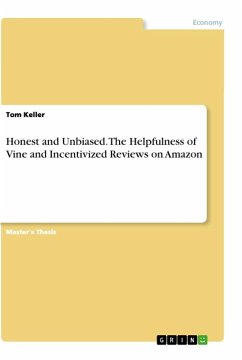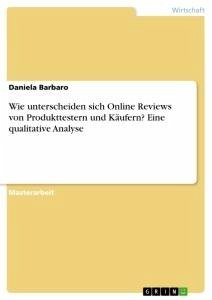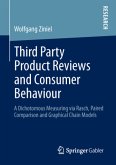Master's Thesis from the year 2016 in the subject Business economics - Offline Marketing and Online Marketing, grade: 1,7, University of Mannheim (Lehrstuhl für Business-to-Business Marketing, Sales & Pricing), language: English, abstract: The goal of this study is to analyze the impact, if any, these two types of incentivization-based reviews have on the perception of the review by the review reader, because these reviews could have a bias or at least could be perceived to have one. For this, the metric of review helpfulness, which is the percentage of helpful votes a review has collected from its readers, is analyzed accounting for a number of independent and confounding variables. Another aspect that is analyzed in the course of this study is the role of the product in this regard. This study is structured as follows: in 2. Literature Review the overarching research domain electronic word-of-mouth is illustrated and previous studies about the helpfulness of online consumer reviews and found effects are presented. Also, credibility in the context of electronic word-of-mouth is discussed. In the course of 3. Conceptual Background two theories used to develop the tested hypotheses are described, one of which is frequently used in context of the helpfulness of online consumer reviews. After this, the theoretical importance of the three most important observed variables in the statistical model is explained and the tested hypotheses are developed accordingly. Data Analysis, a comprehensive outline about the entire empirical aspects of this study is given, including the choice of confounding variables, decisions in regard to the data collection, sample finalization, regression diagnostics and the final results of the hypotheses tests.
Hinweis: Dieser Artikel kann nur an eine deutsche Lieferadresse ausgeliefert werden.
Hinweis: Dieser Artikel kann nur an eine deutsche Lieferadresse ausgeliefert werden.








